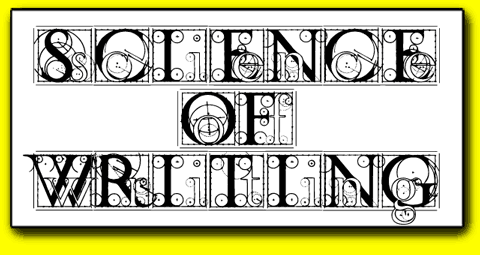Can you imagine standing in front of a class of 35 children? Trying to watch out for all the things that kids try to get away with: eating, fidgetting, whispering, passing notes, chewing gum, tapping fingers, launching spitballs, hooting and hollaring, moving to the wrong seats while your back is turned, and so much more.
Fortunately, many of those children are perfect angels. But those well-behaved darlings get in your way as you try to rush by them to correct the ones that disrupt the entire class.
And you have to do this for 3,000 more classes.
This week!
Those 3,000 classes are the 3,000 paragraphs in your book. Those 35 children are the 35 words in an average paragraph. And all those distruptive behaviors are the various objectional writing errors you may have made in your manuscript: problems with words, sentences, and paragraphs; punctuation, grammar, and formatting; adverbs, flab words, and point of view; and so much more.
Now imagine that you are back in that infernal classroom, but every unruly child in all 3,000 classes magically appears in front of you with a spotlight upon their transgression. And you need only correct one type of transgression at a time, until you’ve dealt with all instances of that particular misconduct in all your classes. Once you have corrected the same misbehavior several times, you will soon perfect the technique that you bring to bear upon such behavior modifications. Soon you will be converting all your rascals into angels, and, by focusing on a single task, your remedies will become second nature, if not automatic.
You now have a picture of how Final Edit approaches editing.
The 50 searches detailed in Final Edit use Word’s powerful “wildcard” search options to scavenge your draft for thousands of errors and whenever possible, fix those mistakes automatically. Rather than attempting to discern hundreds of categories of mistakes with every next word you read, you will be focused on a single type of error until every instance of that error has been resolved. Because Final Edit’s searches take you from one error to the next error of the same type, ignoring the material in between, you will drop into your draft only where there are problems that need to be fixed. This prevents you from being distracted by your own narrative, a state of affairs that slows self-editing to a crawl—a crawl you can avoid with Final Edit.
Navigation


1s.jpg)
2s.jpg)